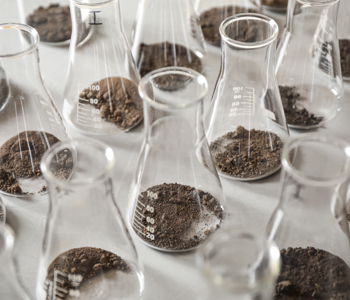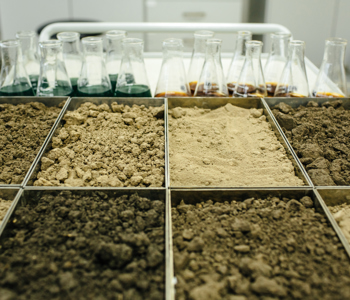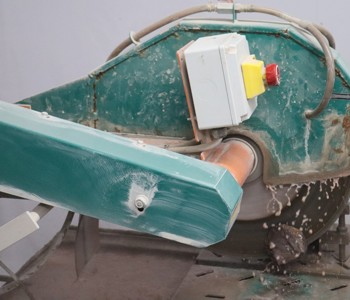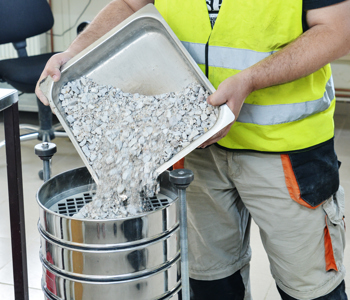Concrete Testing Services
Our UKAS* accredited laboratory is fully equipped with cutting-edge machinery. This ensures we can provide a wide range of concrete testing to meet the necessary standards for any construction project.
Our in-house laboratories are equipped to provide an extensive range of concrete testing and related materials testing services which meet the appropriate British and European Standards.
Our range of concrete tests include:
- Compressive strength of concrete cores
- Diamond core drilling for provision of test cores
- Density of concrete specimen
- Diamond sawing of cores for testing
- Compressive strength of concrete cubes
- Testing and curing cubic specimens
- Testing concrete in structures
- Schmidt Hammer
* For a full list of our UKAS-accredited activities, please visit our Schedule of Accreditation.

Benefits of Concrete Testing
- Save time and money on projects through early removal of formwork
- Ensure reduced road or track possession times for emergency repairs
- Precise calculation of strength in low and high temperature environments
- Optimisation of concrete mix design or for use with specialist applications
What is Concrete Cubes Testing?
Concrete Cube Testing is when a sample of freshly mixed concrete is cured, crushed, and tested to determine its compressive strength. To ensure that a representative sample is obtained, cubic specimens are tested back at the laboratory after curing. This enables us to measure the strength of the fully hardened concrete cubes (100-150mm). They are commonly tested at 7 and 28 days after casting.
To ensure a greater degree of accuracy, our specialist lab technicians use freshly prepared, saturated concrete. This provides a much better representation of the concrete’s overall strength, density, air content, temperature, water absorption, and consistency.
Our concrete cube testing process consists of 6 steps:
Step 1: Fresh samples of concrete are poured into cube moulds
Step 2: The moulds are filled, levelled, and compacted in accordance with BS requirements
Step 3: The cubes are stored for 24 hours at a temperature of between 15°C - 25°C
Step 4: The cubes are cured by submersion in water tanks
Step 5: The cubes are ready for testing and are compressed until the concrete fails
Step 6: Client receives a report on the sample concrete’s compressive strength value

What is Diamond Core Drilling?
Diamond Core Drilling is a quick and effective method of accurately drilling precise holes through materials like concrete. It uses a rotary drill with an attached drill bit, set with industrial diamonds.
Benefits of using this method for the coring and testing of concrete:
- Quick and cost-effective
- Cuts through even heavily reinforced concrete
- No vibrations to cause fracturing of sample
- Clean, sharp, precision cutting
- Accurate, fast, and efficient
- Low hand-arm vibration (HAVS) levels
Our lab technicians test the drilled concrete cores for a range of defects including cracks, voids, honeycombing, and compaction.
Want to find out about our comprehensive concrete test services? Or which types of concrete testing are best suited to your project’s requirements? Please get in touch.





